past event
CHAPTER 5 LAUNCH: Tessa Russell and George Turner
Friday 24 Oct 2025
5:30pm
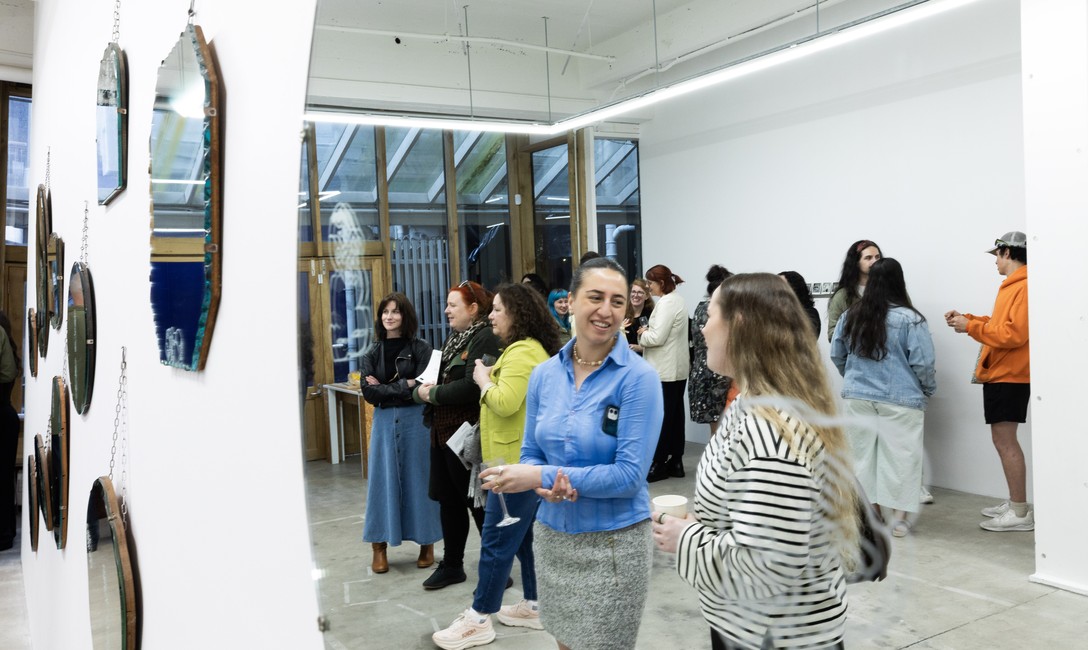
Chapter Five launch. Photo by Renati Waaka.
Join us from 5:30pm on Rāmere Friday 24 Whiringa-ā-nuku October to celebrate the launch of our fifth exhibition chapter, Waitirohia by Tessa Russell and Under the Pasture by George Turner.
In Waitirohia, Tessa Russell expands her exploration of He Whakaputanga me Te Tiriti o Waitangi. This exhibition features a new series of engraved vintage mirrors that are a tribute to the moment when the artist saw her reflection after receiving her moko kauae for the very first time. According to Russell, that experience “changed everything”. For so long, she had felt out of place in her own skin, but in that moment she saw someone she recognised but had never met. The engravings on these mirrors, much like the engraving on Russell's skin, represent tūpuna Māori. Having once seen an exhibition of pounamu in which many hei tiki were catalogued as “iwi unknown,” here the artist makes clear that each hei tiki is an ancestor. In Waitirohia, these unknown ancestors have a home. Continuing her interrogation into the hei tiki form, Russell also presents her ongoing project, 1835. This body of work comprises polaroid photographs of hei tiki, each held in a metal case that has been stamped with 1835, the year that He Whakaputanga was signed. Further attaching necklace-like chains to their frames, the artist envisions these works leaving the gallery and being worn in an act of resistance.
In Under the Pasture, George Turner presents new work centred on old concerns. Underpinning the installation Out of the Scene, into the Fever (2025) are themes of nationhood, colonial control, identity, and decay. In this work, Turner warps the New Zealand flag almost beyond recognition. Using bright yellow beeswax, the artist moulded hundreds of mushroom-shaped candles, which are pressed into the gallery’s floor in the shape of our flag. Looking down at this orderly formation of fungi—so unlike that of their wild counterparts—we are prompted to question if this emblem represents who New Zealanders are today. The moving image work Refugia.exe (2025), shown in the screening room, comprises a looped, digital ecology that has been rendered in 3D using data points gathered from location-based photographs, photogrammetry, motion capture, and mapping tools. Centred on an Aotearoa wetland, its own living refugia (an isolated habitat in which organisms can survive environmental instabilities over long periods of time) of ancestral memory, the work unfolds like a speculative petri dish. Its narrative is constantly morphing, shifting depending on where one looks, when one enters, and what one brings with them. Across the exhibition, Turner reminds us that the land we live on tells its own story, if only we are willing to listen.
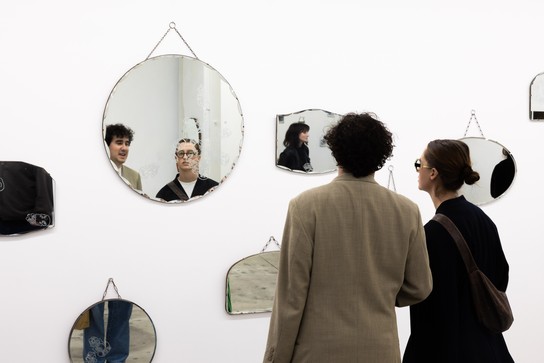
Chapter Five launch. Photo by Renati Waaka.
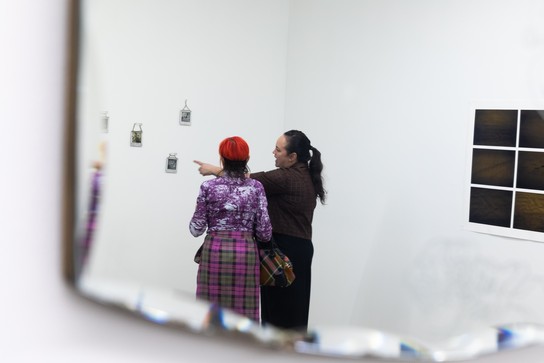
Chapter Five launch. Photo by Renati Waaka.
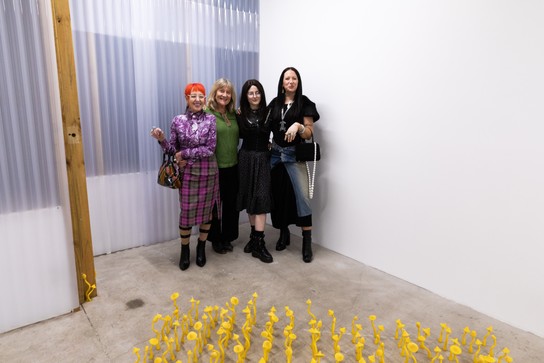
Chapter Five launch. Photo by Renati Waaka.
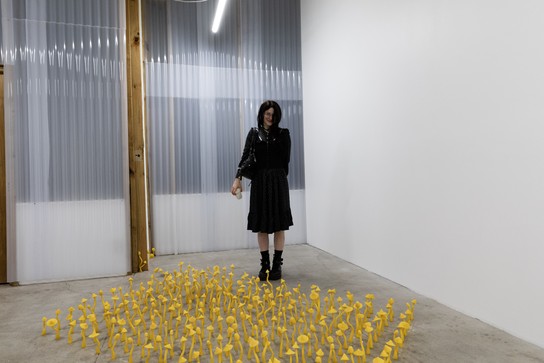
Chapter Five launch. Photo by Renati Waaka.
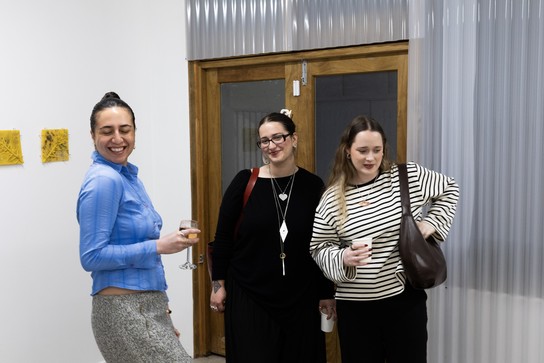
Chapter Five launch. Photo by Renati Waaka.
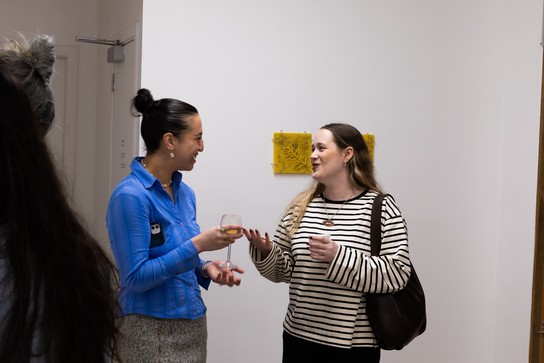
Chapter Five launch. Photo by Renati Waaka.
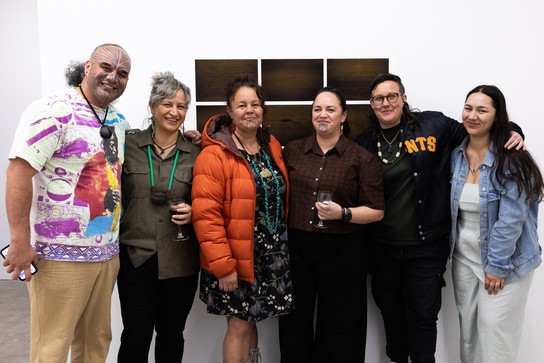
Chapter Five launch. Photo by Renati Waaka.
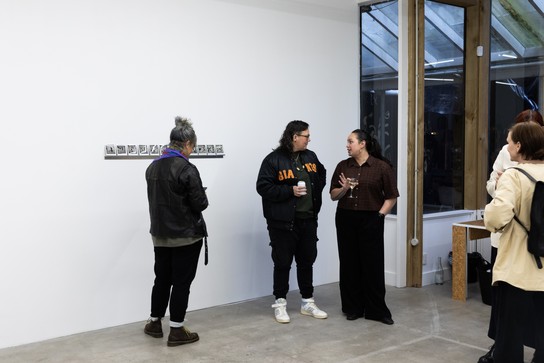
Chapter Five launch. Photo by Renati Waaka.
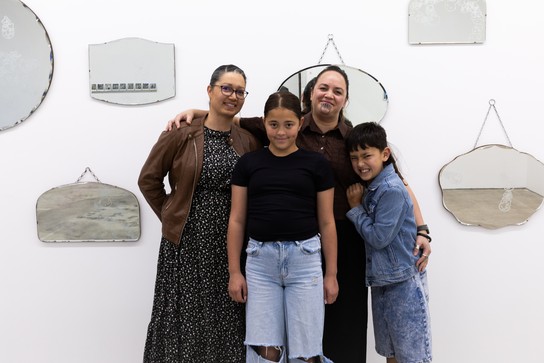
Chapter Five launch. Photo by Renati Waaka.
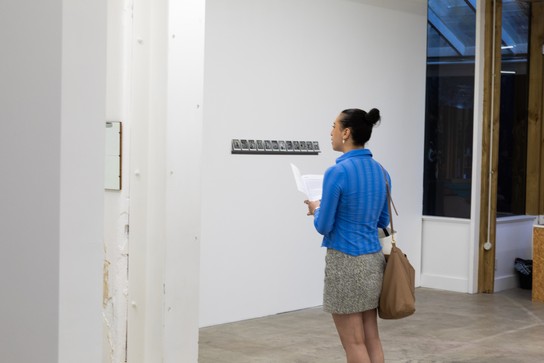
Chapter Five launch. Photo by Renati Waaka.
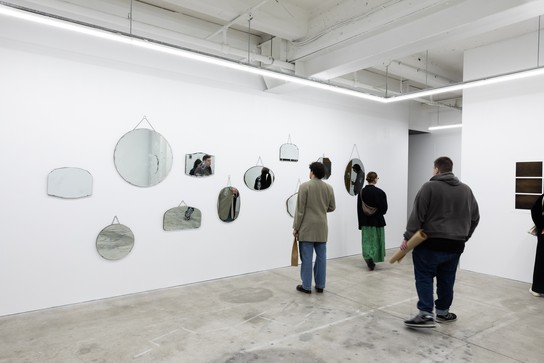
Chapter Five launch. Photo by Renati Waaka.
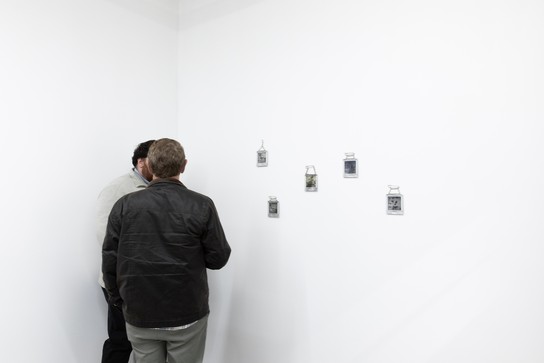
Chapter Five launch. Photo by Renati Waaka.
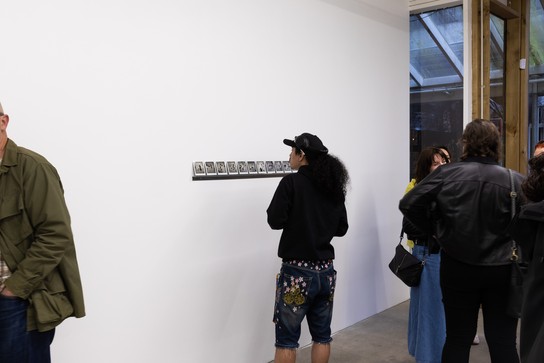
Chapter Five launch. Photo by Renati Waaka.
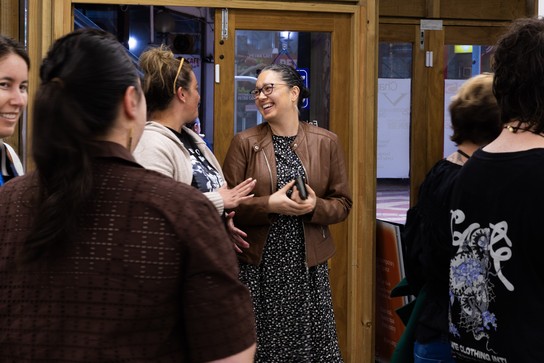
Chapter Five launch. Photo by Renati Waaka.
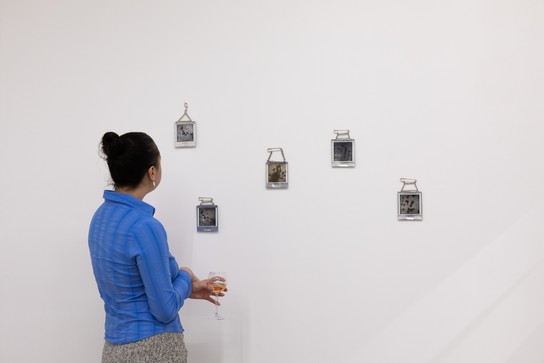
Chapter Five launch. Photo by Renati Waaka.
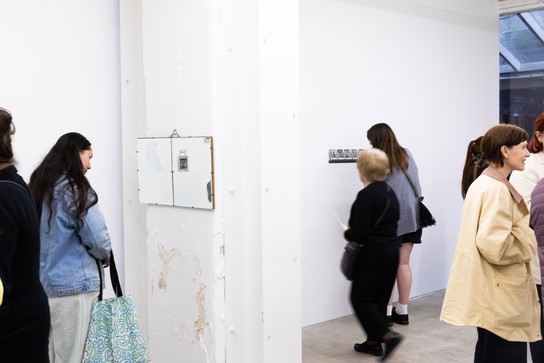
Chapter Five launch. Photo by Renati Waaka.
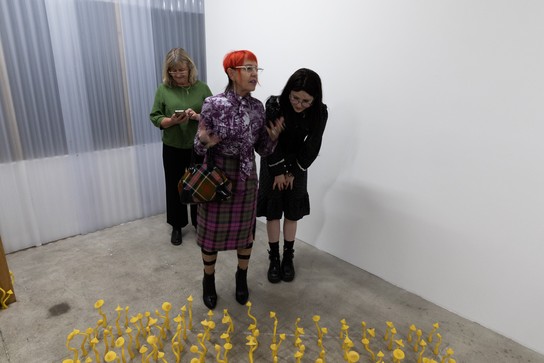
Chapter Five launch. Photo by Renati Waaka.
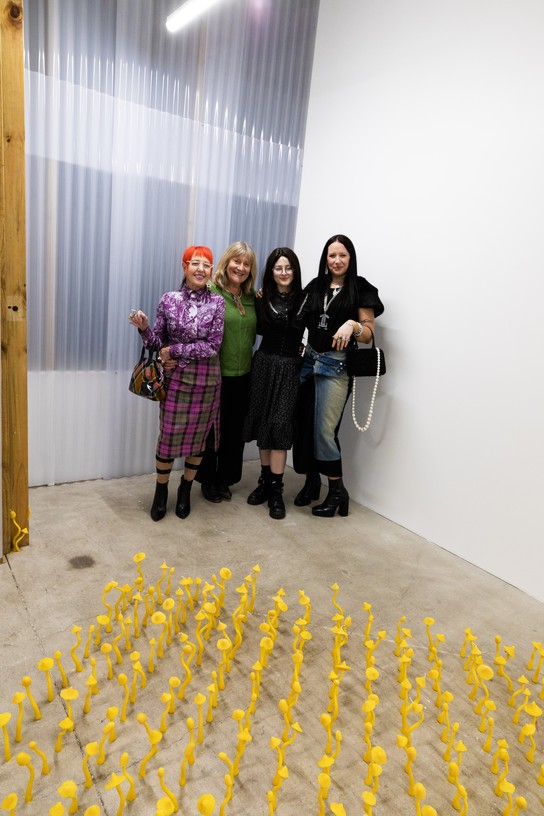
Chapter Five launch. Photo by Renati Waaka.
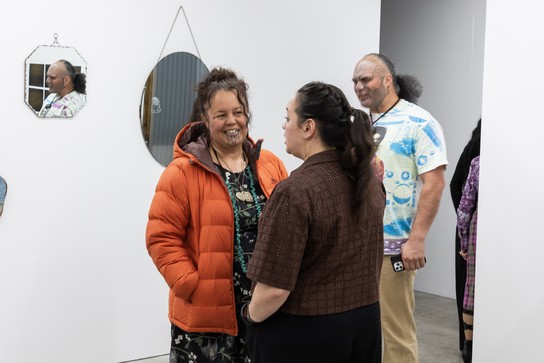
Chapter Five launch. Photo by Renati Waaka.
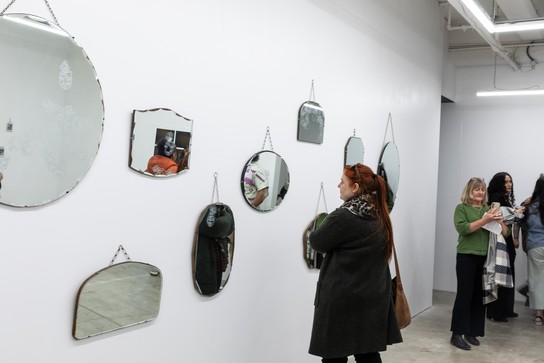
Chapter Five launch. Photo by Renati Waaka.
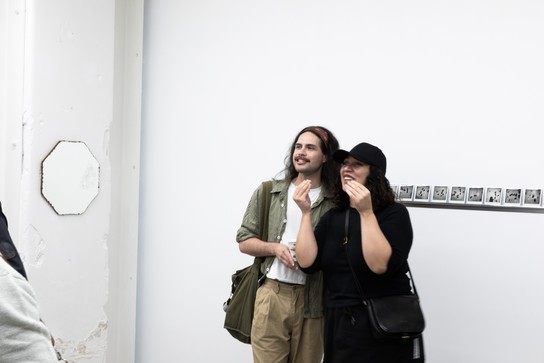
Chapter Five launch. Photo by Renati Waaka.
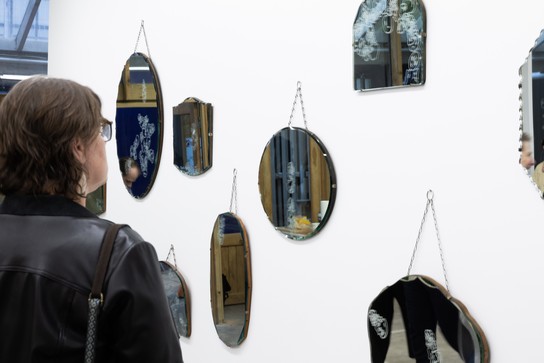
Chapter Five launch. Photo by Renati Waaka.
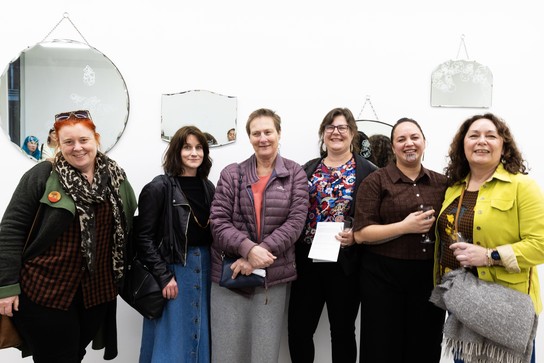
Chapter Five launch. Photo by Renati Waaka.
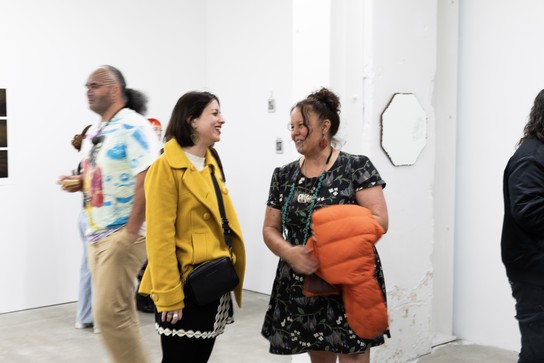
Chapter Five launch. Photo by Renati Waaka.
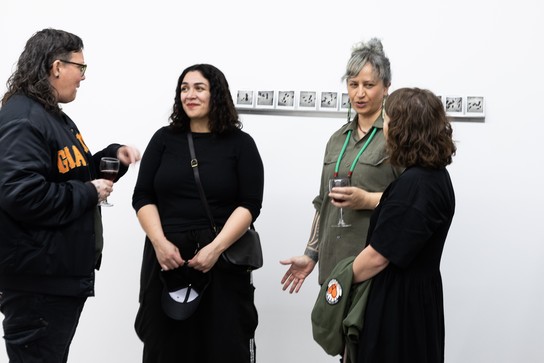
Chapter Five launch. Photo by Renati Waaka.
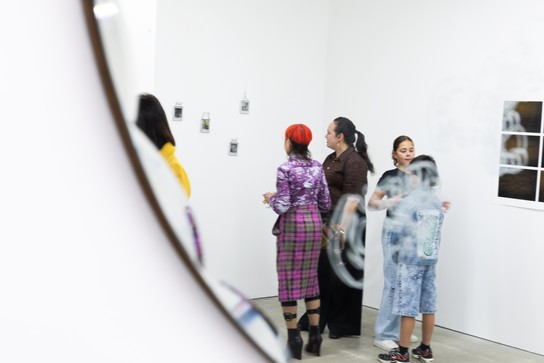
Chapter Five launch. Photo by Renati Waaka.
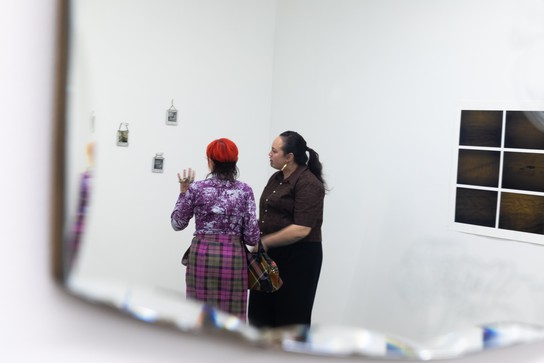
Chapter Five launch. Photo by Renati Waaka.
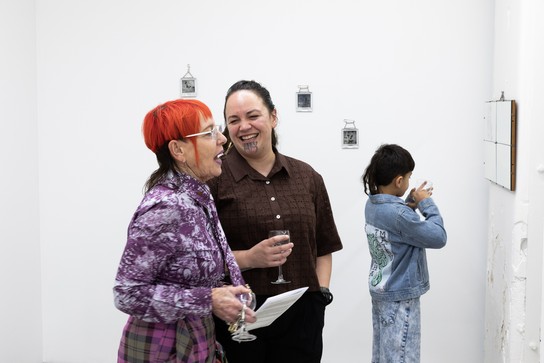
Chapter Five launch. Photo by Renati Waaka.
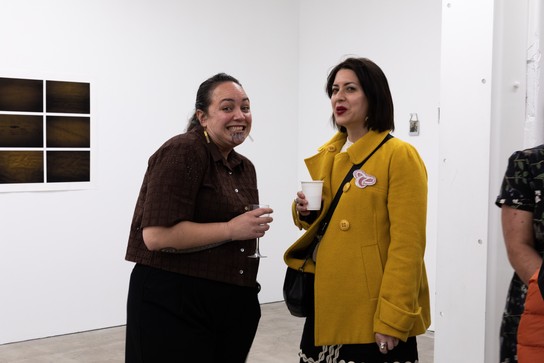
Chapter Five launch. Photo by Renati Waaka.
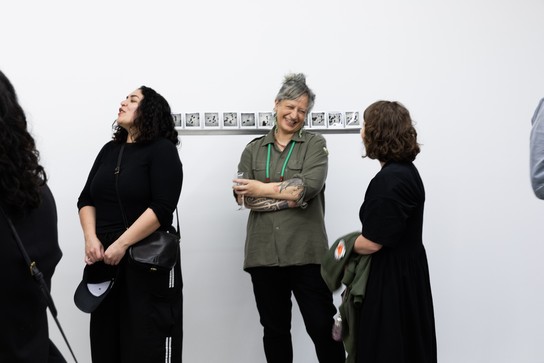
Chapter Five launch. Photo by Renati Waaka.
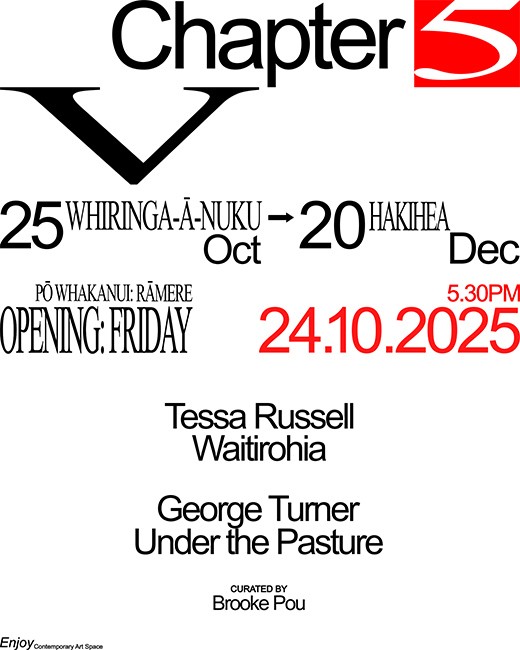
Poster designed by Joe Locke.
Tessa Russell (Ngāti Rākaipaaka) is an interdisciplinary artist, who places her voice as a Māori mother at the centre of her practice. Acknowledging that how she makes will have an impact on the world her descendants live in, her work uses sustainable methods and materials, unapologetically foregrounding the relationship that Māori have with their environment. Tessa’s work is in conversation with current issues affecting Māori, always reflecting on whakapapa, mana, and mauri.
George Turner (Pākehā) builds speculative ecosystems where memory mutates, land remembers, and futures remain insistently open. Based in Te Whanganui-a-Tara, Aotearoa New Zealand, Turner is a transdisciplinary artist crafting across mediums to explore the fragile entanglements of ecology, technology, and identity.Rooted in Pākehā identity and guided by posthuman philosophy, Turner’s practice enacts land as archive, wound, and collaborator. Using tools like photogrammetry, motion capture, and real-time simulation, their works render haunted environments — spaces where colonial trauma, ecological collapse, negligence and resistance coexist.
Turner's work has been shown across Aotearoa New Zealand in both solo and group exhibitions. In 2022, they were a recipient of the inaugural Trans-Tasman Digital Artist Fellowship, a joint initiative run by Creative New Zealand and the Australia Council for the Arts. Across all projects, Turner’s work conjures worlds in flux, where art is not an escape from collapse, but a blueprint for how we might begin again.
